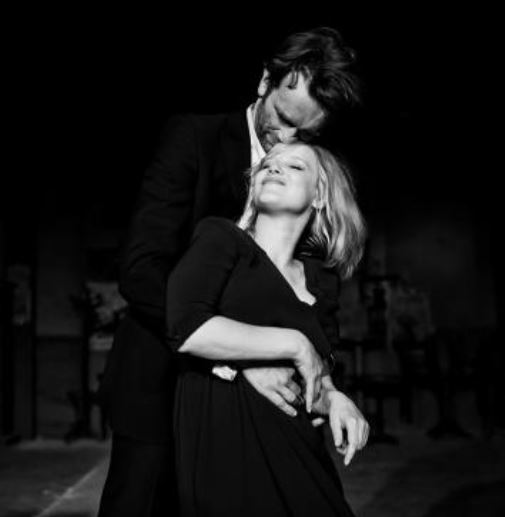Cold War is this year’s hotly anticipated offering from Pawel Pawlikowski, director of the Academy Award-winning Polish language feature Ida (2013). A contender for the Palme d’Or, Cold War also earned Pawlikowksi the award for Best Director at this year’s Cannes Film Festival – and rightly so.
Broadly inspired by Pawlikowski’s parents’ tempestuous relationship, the film is a mesmerising and intoxicating depiction of a tragic romance, set against the backdrop of post-war Europe. The story begins in Poland in 1949 and follows the love affair between Wiktor and Zula over the course of fifteen years, as they attempt to navigate the dangerous and frightening landscape of communist Eastern Europe, as well as the equally complex and hazardous emotional terrain of their troubled but enduring romance.
After the broodily handsome, Heathcliff-esque Wiktor recruits the enigmatic young Zula as a performer for a Polish folk musical troupe, the pair find themselves embroiled in a passionate and tumultuous affair that will be the catalyst which prompts them to flee Poland, first to Yugoslavia, then later to Paris. Their search is not only for sanctuary from Stalinist oppression, but for freedom from their own personal flaws and the destructive demons that haunt their relationship.
Zula and Wiktor’s roles as musicians and performers are reflected in the film’s preoccupation with the act of observing and the experience of being watched. The film opens with a series of close-ups of individual Polish folk singers facing the camera, as if in direct address to the viewer, followed by shots of the back of their heads. Later, a mirror is used effectively to provide a more explicitly meta perspective on the idea of watching and of watchfulness. The thematic ties to the political surveillance the protagonists are subject to in Poland are clear. In one scene, Zula becomes aware that Wiktor is in danger during one of her performances, when she looks to his seat in the audience and finds it suddenly vacant. The emotional restraint she is forced by the circumstances to display is a fitting metaphor for so much of their lives.
Joanna Kulig is luminous in her portrayal of Zula. Her screen presence channels both 1960s Julie Christie and present-day Jennifer Lawrence, a combination that enables her to effortlessly convey an alluring but contradictory character, who is by turns impassive and guarded, charismatic and comic, impetuous, fragile and vulnerable. Tomasz Kot‘s depiction of the inscrutable Wiktor is similarly commanding. For the first half of the film, he seems cynical, jaded and aloof, yet visibly invigorated by his infatuation with Zula. As the film progresses, he shows a capacity for quiet, acute agony, which Kot portrays with unparalleled poignancy.
Cold War bears many of Pawlikowki’s directorial trademarks. His signature use of black and white simultaneously conveys the sumptuous romance of the reckless love affair and the contrastingly sombre austerity of the setting. As in Ida, the camera shots are designed so that the primary subject is rarely centre-screen and this off-kilter framing steeps the film in a profound sense of realism, as well as communicating a feeling of low-key disquiet and disorientation. A master of inference, Pawlikowski conveys the nuanced and complicated emotional evolution of the protagonists with a subtlety so genuinely magical that the ending, almost Shakespearean in romance and tragedy, is imbued with a compelling, heart-breaking, profoundly human truth.
